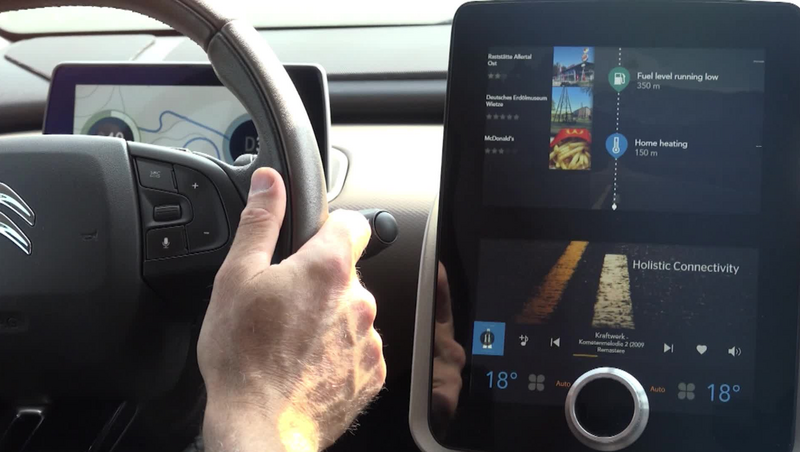The Car as Part of the Internet? Yes, Please!
- Motorists are open to traffic management systems and black boxes for accident analysis
- But except among young drivers, Germans are skeptical about sharing personal data
- Helmut Matschi, member of Continental’s Executive Board: Services and offerings providing real added value will find acceptance
Hanover, December 12, 2018. According to the Continental Mobility Study 2018, motorists appreciate the potential benefits of their cars being connected to the Internet. A large majority of people in Germany, the U.S.A., China and Japan utilize offerings and services based on the digitalization and connectivity of vehicles. Traffic management systems such as navigation and guidance systems – including route recommendations and parking displays – are particularly popular.
But drivers are much more reluctant to share their driving behavior data with insurers. While around three quarters of respondents in China would be willing to do this, only around half of motorists in Japan and the U.S.A. would do so. The majority of respondents in Germany would not be willing to share their data with insurers: Only four out of ten drivers would be willing to do so, with this figure falling to three out of ten among motorists aged up to 30. The situation among young drivers in the U.S.A. is quite different: Two thirds would be willing to share their driving behavior data in order to gain favorable insurance schemes. The figure among Chinese motorists stands at 80 percent and, in Japan, at a good 50 percent.
Motorists want service and maintenance recommendations
Most popular are “black box” systems, which contain data memories that allow driving situations to be reconstructed following accidents. Three out of four drivers in both Germany and the U.S.A. would welcome black boxes, with this figure standing at two thirds in Japan and four fifths in China. Service and maintenance recommendations based on connected vehicle data would also be welcomed, most strongly in China (80 percent) and the U.S.A. (70 percent). In the U.S.A., women in particular would welcome such recommendations (79 percent). There is also significant demand for this in Japan (67 percent) and Germany (56 percent).
“People mainly use service offerings that they understand and that bring them real added value. This is demonstrated by the high degree of acceptance of traffic management solutions. More than 20 years ago, our developers put the first car navigation system into mass production. Today, everyone knows about them and everyone uses them. The service advantages offered by modern smartphones are also readily accepted in cars,” says Helmut Matschi, responsible for the Interior division and member of Continental’s Executive Board.
The ability to enjoy the benefits of offerings and services based on connected data also often requires drivers to share personal data. But in Germany, less than half of drivers are prepared to do this. In China, three quarters of all respondents across all age groups have no objection to sharing their personal data. Around 60 percent of respondents in the U.S.A. and around half in Japan have no objection to sharing their personal data – albeit with one exception: Less than half of the motorists surveyed in either country are willing to share their data with insurance companies.
“Motorists are facing a dilemma. The ability to enjoy the benefits of offerings and services based on connected data also often requires drivers to share personal data. Less than half of German motorists are prepared to do this, even though sharing data is something we do every day when using smartphones and social media. This is probably why motorists aged up to 30 are more open-minded. More than three-quarters of them have no objection to sharing personal data. Incidentally, this is one of the relatively few areas in the study where the responses received from younger and older people diverge considerably. This motivates us to place the emphasis on data security and to communicate this among all age groups,” says Matschi.
For the Continental Mobility Study 2018, the technology company commissioned the market and social research institute infas to conduct a representative survey of drivers in Germany, the U.S.A., Japan and China. Experts from the world of science and research as well as from the automotive industry were also interviewed. This makes the study one of the most comprehensive of its kind worldwide on the acceptance of advanced driver assistance systems and automated driving.
Please click here for more information about the 2018 Mobility Study.
- The 2018 Mobility Study
- Germans Curious About Robo-Taxis and Largely Reject Carsharing
- The Car as Part of the Internet? Yes, Please!
- Motorists Want Driver Assistance Systems for Navigating Road Construction Zones
- Motorists Remain Loyal to Engine Type
- Stress, Fun and Superman – the Complex Emotions of German Drivers
- Mixed Feelings Among German Drivers About Automated Driving










